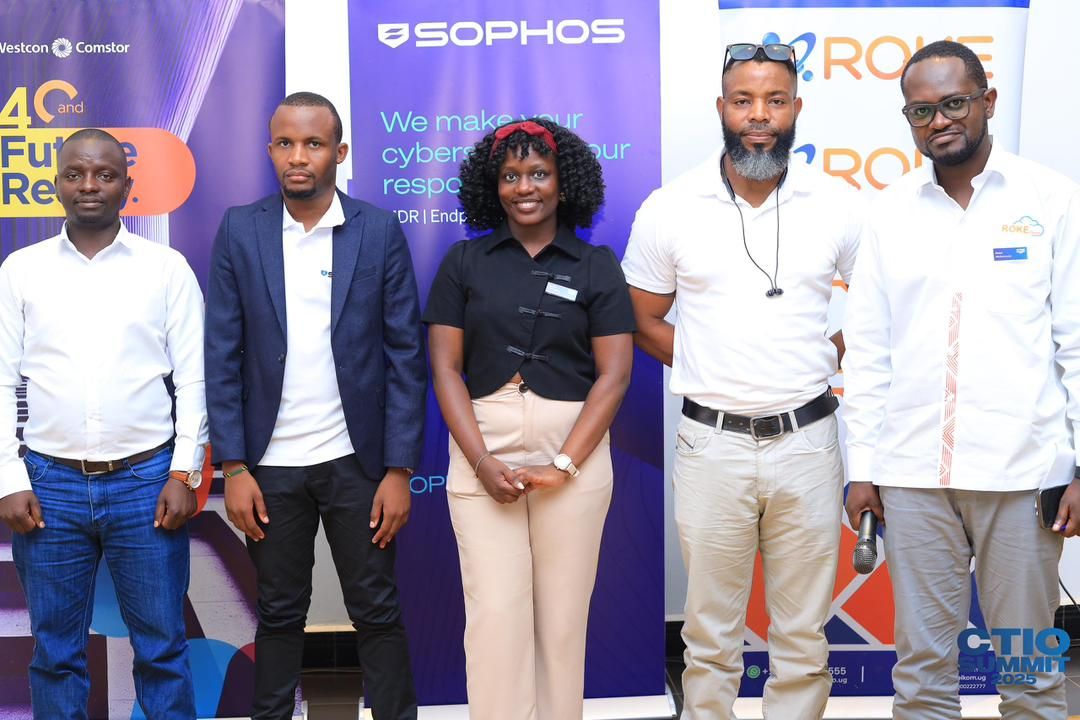Roke Telkom has unveiled its comprehensive Roke Managed Services portfolio. This suite is a full-spectrum IT rescue operation designed to offload the burdens of network management, cybersecurity, telephony, infrastructure, and disaster recovery from enterprises and SMEs alike.
– Advertisement –
Imagine handing over your glitchy servers, unreliable Wi-Fi, and looming cyber threats to a team of experts who guarantee 99.8% uptime—freeing you to chase growth instead of chasing bugs.
Roke Telkom, licensed by the Uganda Communications Commission (UCC) since 2006 as a public service provider for voice and data, has long been a pioneer in Uganda’s connectivity landscape. From rolling out the country’s first fibre link to Tanzania to partnering with global giants like Google and USAID, the company has built a reputation for bridging Uganda’s digital divides.
Now, with this launch, Roke is evolving from a mere connectivity provider into a holistic technology ally, targeting sectors like finance, education, and manufacturing where downtime can cost thousands of shillings per hour.
At its core, the suite comprises five pillar solutions—Managed Networks, Managed Security, Managed Telephony, Managed Infrastructure, and the critical Disaster Recovery as a Service (DRaaS)—all underpinned by 24/7 monitoring, proactive maintenance, and scalable cloud integration. Priced competitively for both startups scaling up and established firms optimizing costs, these services promise to slash IT overheads by up to 40% while boosting operational efficiency. In a nation where internet penetration hovers around 50% and businesses grapple with erratic power grids, this couldn’t come at a more pivotal time.
Breaking down the Suite
Let’s peel back the layers on what Roke is bringing to the table. Each component is engineered for Uganda’s unique ecosystem ensuring seamless integration without the need for massive upfront investments.
| Service | Key Features | Business Impact |
| Managed Networks | Full LAN orchestration: Wi-Fi deployment, SD-WAN for optimized routing, cabling, switching, and 24/7 connectivity monitoring. | Eliminates dead zones and lag, enabling remote teams to collaborate without frustration—vital for Uganda’s hybrid workforces. |
| Managed Security | 24/7 threat hunting, AI-driven firewalls, encryption, and rapid incident response to fend off ransomware and data breaches. | Shields against rising cyber risks; with Uganda seeing a 300% spike in attacks since 2023, this is non-negotiable for SMEs. |
| Managed Telephony | End-to-end PBX setup (cloud or on-prem), VoIP optimization, and maintenance for crystal-clear calls. | Streamlines customer interactions; perfect for call centers in Kampala’s bustling B2B hubs. |
| Managed Infrastructure | Server provisioning, hybrid cloud migrations, patching, and performance tuning across on-site, AWS, or Azure setups. | Reduces hardware failures by 70%; scales effortlessly as businesses grow from 10 to 100 users. |
| Disaster Recovery as a Service (DRaaS) | Real-time backups, automated failover, and recovery orchestration to minimize downtime post-attack or outage. | Ensures business continuity; in a country prone to floods and blackouts, this could save firms from weeks of paralysis. |
What ties it all together? A robust Service Level Agreement (SLA) guaranteeing 99.8% uptime, bolstered by Roke’s proprietary monitoring tools that predict issues before they escalate. Add in features like zero-trust access controls, automated network optimization, and pay-as-you-grow scalability, and you’ve got a toolkit that’s as flexible as Uganda’s entrepreneurial spirit.
Roke’s existing infrastructure, spanning over 5,000 km of fibre across the country, forms the backbone. Early adopters in banking and education are already reporting smoother operations, with one Kampala-based fintech crediting the suite for halving their support tickets.
What they say
Peter Muhumuza, the company’s Chief Technology Officer (CTO), who has steered Roke through expansions like the USAID-backed broadband push in underserved districts, laid it out plainly during today’s virtual press briefing.
“Roke Managed Services is a game-changer for Ugandan businesses,” Muhumuza declared. “We’re moving beyond simply providing connectivity and becoming a true technology partner. By leveraging our infrastructure and expertise, enterprises and SMEs can offload the complexities of IT management and gain a competitive edge. This launch is a significant step in fuelling the nation’s digital growth, ensuring that system downtime and technical roadblocks no longer stand in the way of innovation and success.”
Muhumuza’s words echo a broader sentiment from Roke’s C-suite. In a follow-up Q&A, he highlighted real-world anecdotes: a manufacturing client in Jinja who slashed recovery times from days to hours post-ransomware scare, and an education NGO in Mbale whose remote learning platform now hums without Wi-Fi woes. “We’re not just fixing problems,” he added. “We’re building resilience so Ugandan innovators can dream bigger.”
Industry watchers chimed in too. Dr. Aminah Zawedde, Dean of Computing at Makerere University, praised the timing: “As Uganda pushes for a 70% digital economy by 2030, services like this democratize access to enterprise-grade IT. It’s a boon for our startups, who often lack the capital for in-house teams.”
Why it matters
On the surface, Roke’s launch feels like tech jargon overload. Dig deeper, though, and it strikes at the heart of Uganda’s economic engine: a burgeoning SME sector that’s 90% of all businesses but perpetually hamstrung by IT gremlins. In 2025, as Kampala’s skyline sprouts more co-working spaces and e-commerce booms via platforms like Jumia, the cracks are widening.
Start with the talent drought. Uganda’s tech workforce is growing—bootcamps like Andela and Nucamp are churning out coders—but businesses still face a 40% skills gap in cybersecurity and cloud management. SMEs, in particular, can’t afford full-time sysadmins earning UGX 5-10 million annually. Enter managed services: Roke’s experts handle the heavy lifting, letting owners focus on revenue, not routers. This isn’t luxury; it’s survival. A 2025 GSMA report notes that tech innovations like these have already scaled startups like SafeBoda beyond borders, solving local pain points like unreliable last-mile delivery.
Then there’s the infrastructure nightmare. Power outages—affectionately called “load shedding”—hit businesses 20-30 times monthly in rural areas, frying servers and halting operations. Unreliable internet, with speeds averaging 10-20 Mbps in non-urban zones, exacerbates this; a single downtime episode can cost a mid-sized retailer UGX 50 million in lost sales. Roke’s DRaaS and hybrid infrastructure management flip the script, offering geo-redundant backups and failover to cloud backups during blackouts. It’s a direct antidote to the “digital divide” that’s leaving 50% of Ugandans offline, per CIPESA’s latest analysis.
Cyber threats loom largest. Uganda recorded over 15,000 data breaches in 2024 alone, with SMEs—lacking robust defences—bearing 70% of the brunt. Ransomware demands have surged 400%, targeting everything from matooke exporters’ ledgers to university exam portals. Roke’s Managed Security, with its proactive threat intelligence, aligns with the Data Protection and Privacy Act 2019, helping firms comply while preempting attacks. As Othware’s 2025 cybersecurity primer warns, “Uganda’s digital future is bright, but fragile”—without tools like these, businesses risk extinction.
Broader societal ripples? Change management is key. Ugandan firms often resist tech shifts due to cultural inertia or funding squeezes, per Cedar Africa Group’s insights. Roke’s scalable model eases adoption, fostering a “future of work” where digital natives thrive amid the digital economy’s promise—and pitfalls. Ultimately, this suite could turbocharge Uganda’s GDP contribution from ICT, projected to hit 12% by 2027, by empowering the underdogs driving 80% of job creation.
– Advertisement –





